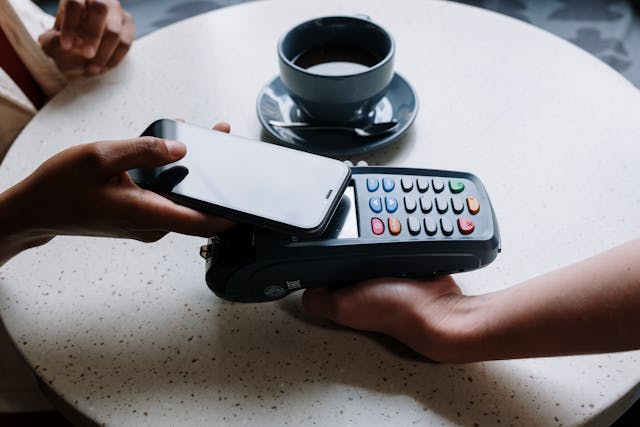Discover how long pending transactions take, what affects their timeline, and how to navigate delays effectively for seamless banking
When you swipe your card or initiate an online payment, you might notice that the transaction doesn’t immediately reflect in your account. Instead, it shows as “pending.” This is a common occurrence in banking and financial transactions. But what exactly does it mean? And more importantly, how long do pending transactions take to process?
In this guide, we’ll dive deep into the world of pending transactions, breaking down timelines, factors, and actionable tips to navigate delays like a pro.
Article Breakdown
What Are Pending Transactions?
Pending transactions are payments that have been authorized but not yet fully processed. Think of it as a middle stage where the payment is acknowledged but hasn’t been finalized. During this phase, the amount is temporarily reserved in your account and deducted from your available balance, but it hasn’t been officially withdrawn.
For instance, when you buy a coffee using your debit card, the bank authorizes the transaction immediately. However, the actual settlement—where funds are transferred to the merchant—may take a day or two.
Why Do Transactions Go into Pending Status?
There are several reasons why transactions might enter the pending phase. Let’s unpack the most common ones:
Payment Authorization
The merchant needs to verify that your account has sufficient funds to complete the purchase. Once verified, the transaction is authorized but not yet settled.
Processing Delays
Banks and payment processors often take time to reconcile payments, especially during weekends or public holidays.
Merchant-Specific Policies
Some merchants may take longer to process transactions, depending on their systems or operational workflows.
Cross-Border Transactions
Payments involving international accounts or currencies may face additional scrutiny, adding to processing times.
Typical Timeframes for Pending Transactions
The duration of pending transactions can vary widely based on the payment method, bank policies, and other factors. Below is an overview of typical timelines:
Debit and Credit Card Transactions
- Standard Timeline: 1–3 business days.
- Exceptions: Transactions made over the weekend or on holidays may extend the pending period.
Bank Transfers
- Domestic Transfers: Usually completed within 1–2 business days.
- International Transfers: These can take anywhere from 3–7 business days due to additional checks and currency conversions.
E-Wallet Payments
Platforms like PayPal, Venmo, or Wise often process transactions instantly, but delays can occur if:
- The payment requires manual review.
- The user’s account has suspicious activity.
Factors That Influence Processing Time
Bank Policies
Each financial institution has its own protocols for processing payments. Some banks prioritize transactions based on their type or the customer’s account tier.
Time of Transaction
Payments initiated during business hours are usually processed faster than those made late at night, on weekends, or public holidays.
Type of Merchant
Larger merchants with advanced payment systems might process payments more quickly than smaller vendors relying on manual processes.
Payment Method
Credit cards often have slightly longer timelines for settlement compared to debit cards. Similarly, wire transfers usually take longer than instant payments.
Can You Speed Up Pending Transactions?
While you may not have full control over the process, there are a few proactive steps you can take to avoid or minimize delays:
Use Reliable Payment Methods
Stick to well-established banks or payment processors with a reputation for quick and efficient services.
Monitor Your Transactions
Regularly check your account to identify any unexpected delays or discrepancies. Many banks offer mobile apps with real-time updates.
Avoid Transactions During High-Traffic Periods
If possible, initiate payments during regular banking hours and avoid weekends or holidays.
Contact the Merchant or Bank
If a pending transaction seems unusually delayed, reach out to the merchant or your bank. In many cases, they can provide clarity or escalate the issue for faster resolution.
Common Scenarios and Their Resolutions
Case 1: Pending Transaction for Over a Week
This often happens with cross-border payments or merchant-specific delays. Contacting the merchant is usually the fastest way to resolve the issue.
Case 2: Double Authorization
Sometimes, a transaction might appear twice in your pending list. This is common for pre-authorized payments like hotel bookings or car rentals. In most cases, one of the transactions will drop off automatically within a few days.
Case 3: Cancellation of Pending Transactions
If you change your mind after initiating a payment, the merchant or bank may cancel the transaction. However, the reserved funds might not immediately reflect in your available balance, taking up to 10 business days to return.
Avoiding Common Pitfalls
- Keep Sufficient Balance: Overdraft fees can add up if a pending transaction pushes your account into the negative.
- Read Merchant Policies: Some businesses, like gas stations or hotels, may place holds higher than the actual transaction amount.
- Use Alerts: Set up notifications for every transaction to stay informed about pending charges and completed payments.
Key Takings
- Pending transactions represent payments authorized but not yet fully processed.
- Most pending transactions clear within 1–3 business days, but factors like weekends, holidays, and cross-border payments can extend timelines.
- Proactively monitor your transactions and contact your bank or merchant for any unusual delays.
- Understanding merchant policies and payment methods can help avoid unnecessary complications.



